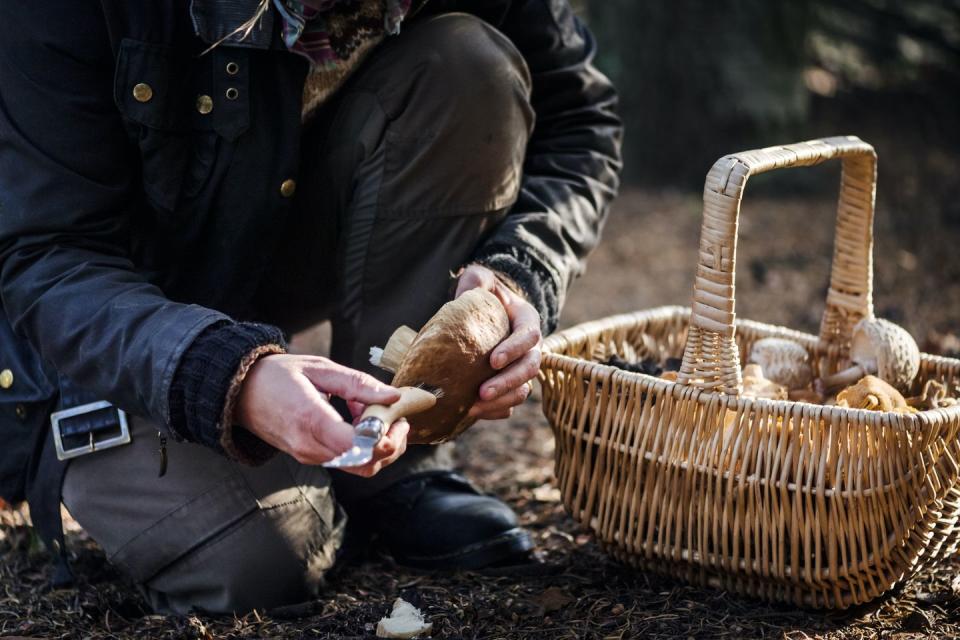Can foraging help with the cost of living crisis? Meet the Brits finding food at their feet

Searching for wild food resources is a brilliant way to connect with nature, but now many Brits are foraging regularly to keep food costs down amid the cost of living crisis.
According to iNews, foraging guides up and down the country have witnessed a huge surge in demand from people looking to source their own ingredients for free. With food prices rising 11.4% from August 2021 to August 2022, it's no surprise households are hunting for fruits, nuts, herbs, leaves and seeds at their feet.
"Food is literally in your backyard and people don't know," Liz Knight, a Hertfordshire-based forager and the author of Forage: Wild Plants to Gather, Cook and Eat, says. "It would be impossible for someone not to be near wild food. We could be in a car park. Where there is any kind of soil, the seeds are going to germinate. [Plants] grow really close to us. People often think they have to go right to the middle of the country to forage but they don't."

Over in Cornwall, the Family Foraging Kitchen provides foraging walks to help reduce food insecurity, preserve traditional skills, and help people from low and no-income households pick their own produce. They have recently launched a Community Food Support Map to show people where food can be foraged in the local area.
"The cost of living at the moment is so expensive that we no longer can afford to go into a supermarket and do a weekly shop," Company founder, Vix Hill-Ryder, told MailOnline. "It just doesn't stretch that far. Stretching that is the way forward — and I can show you how to do that simply just with a local hedgerow."
Daniel Butler, a foraging guide in Powys, Wales, tells iNews that his local woodland areas are teaming with mushrooms at this time of year.
Other foods to keep an eye open on your next foraging adventure include wild garlic, nettles, elderflowers, blackberries, mint leaves, and sweet chestnuts. Plus, lots of common garden weeds can be harvested and enjoyed in a delicious meal. Our back gardens may seem like unlikely places to forage, but many of those pesky weeds are actually valuable foods, loaded with antioxidants, vitamins and protein.
7 tips to make the most of foraging
Planning on foraging your own food? Keep reading for everything you need to know, according to The Woodland Trust:
1. Take no more than you plan to consume. This will help to reduce unnecessary food waste.
2. Know what you are picking. Never consume a wild plant or fungus unless you are absolutely certain of its identification.
3. Only collect flowers, leaves, fruits and seeds where they are in abundance.
4. Leave plenty of food behind for animals and insects. Wild food is vital for the survival of the UK's wildlife.

5. Do not pick rare species. Only take plants and fungi when you are certain you know what they are.
6. Check what you are allowed to pick. It is illegal to dig up or remove a plant (including algae, lichens and fungi) from the land on which it is growing without permission from the landowner or occupier.
7. Seek permission if you want to pick from a private field, garden or estate.
You Might Also Like


